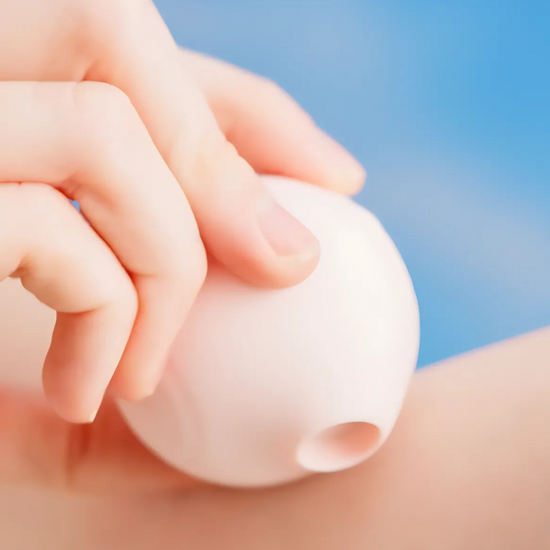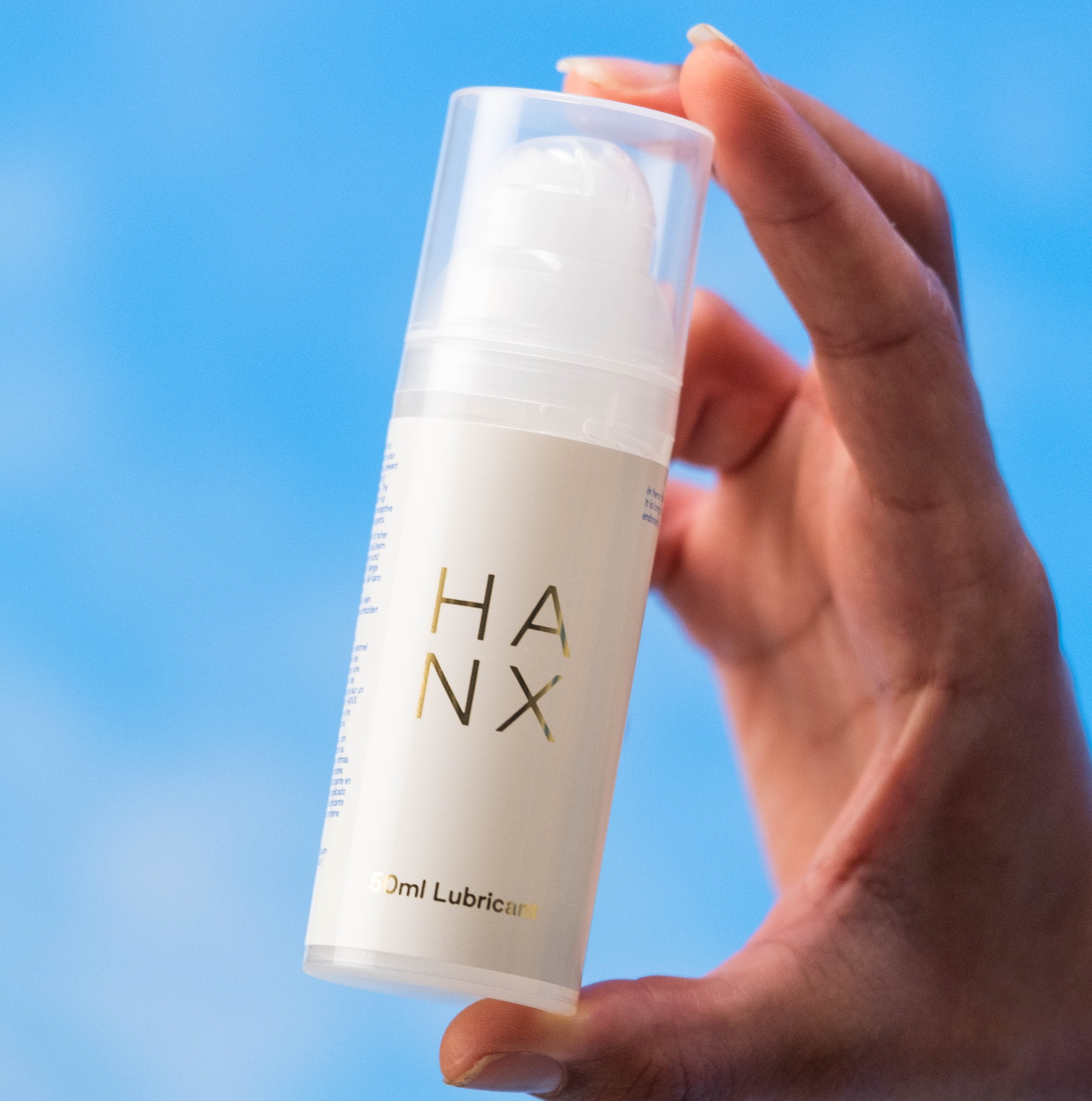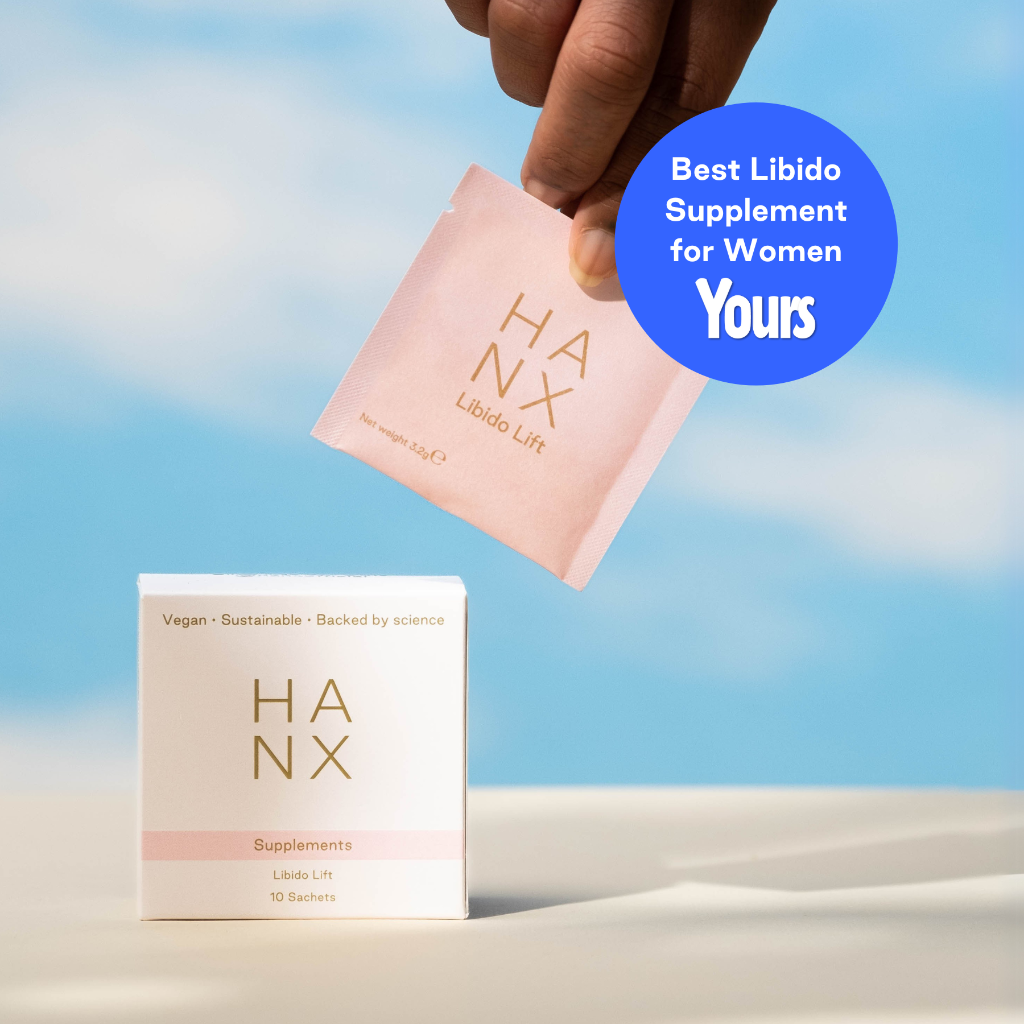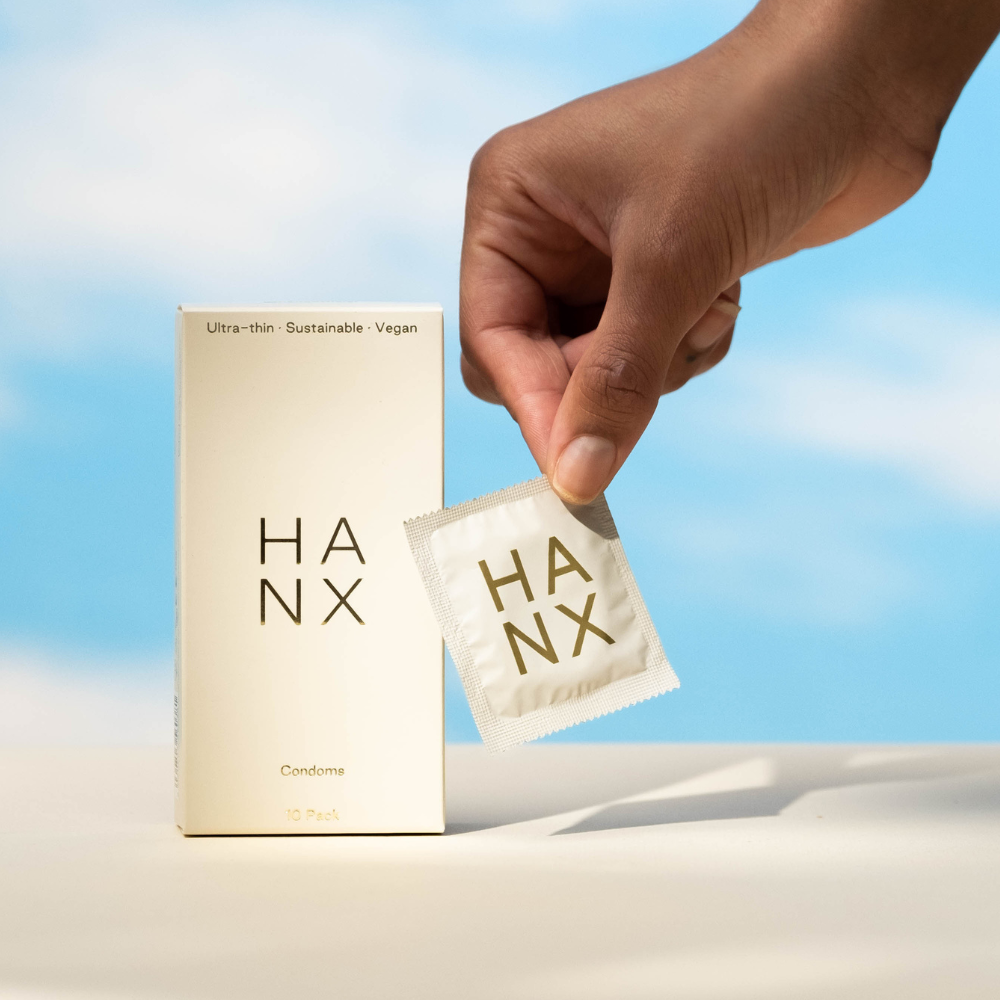Our In-House Gynae. Your Most-Asked Menopause Questions.
Menopause: a life stage that affects countless individuals but remains clouded in stigma and silence. We reckon it's time to change how we approach The Change. We launched HANX not just to offer a natural, sensitive alternative to harsh sexual and intimate wellness products on shelf, but to champion openness, transparency, and empowerment when it comes to our health. We know the immense impact menopause has on women's lives and how, all too often, it is dismissed or avoided altogether. Society has perpetuated the idea that menopause is something to be ashamed of—a secret to keep hidden away. Like many women's health conditions, shrouding menopause in silence only adds to the challenges of navigating the journey.
We opened up our DMs to the HANX community and asked you to share the questions you really, really want answered. From hot flushes to weight fluctuations, vaginal dryness to what the hell perimenopause actually is, our Co-Founder and gynaecology Dr Sarah Welsh is here for you.
When does the menopause happen?
“Menopause is defined as the end of your menstrual cycle, when your periods stop due to lower hormone levels. It officially occurs when a woman or person who menstruates hasn’t had a period for 12 months and this tends to happen between the ages of 45 and 55.”
Can I go into menopause early? My sister was in her early 40s.
“Sometimes it can happen earlier naturally. Certain factors that can influence earlier menopause such as medical conditions, surgical procedures such as removal of the uterus (a hysterectomy) or cancer treatment (chemotherapy). However, we aren’t always able to pinpoint the reason for an early or late menopause. Some studies report that there may be a correlation between the age when your mother experienced menopause and when you yourself will, too.”
What does perimenopause really mean?
“This is the time when your body starts to naturally transition into menopause (e.g before your period stops, and your levels of oestrogen start to decrease) – the warm up act, if you will. It can last for months, or several years, and you might first notice that you are in perimenopause if you’re experiencing irregular periods (where it begins to differ from your normal cycle). Alongside this, you may experience vaginal dryness, chills, night sweats, mood changes, thinning hair and one of the most widely known symptoms, hot flushes. These symptoms can improve with time or continue and be consistent throughout perimenopause. It’s important to know that some symptoms, especially vaginal dryness (where the delicate tissue of the vaginal walls becomes thinner and more susceptible to soreness and tearing), can continue after menopause and to take care of yourself accordingly e.g. use natural, water-based lubricant (not just during sex to ease discomfort) and avoiding strongly perfumed body washes around your vagina.”
Are weird periods always a sign of menopause? Could it be anything else?
“Some symptoms can mimic the symptoms of gynaecological cancers, uterine, cervical and ovarian cancer, such as abnormal bleeding. As many people experience irregular periods in this time, it can be difficult to determine if this is a cause for concern. It’s important to look out for other symptoms including abdominal swelling, nausea, shortness of breath. If you’re at all worried, speak to your doctor or healthcare provider, as they are there to help you navigate this change.”
Why do I keep hearing that I need to look after my bones in menopause?
“Some menopause symptoms are more well-known than others. More visible symptoms such as hot flashes/flushes are harder to ignore, and increasingly feature in TV and movies. However, lots of people aren’t aware that declining oestrogen levels can increase your risk of osteoporosis. Due to the drop in oestrogen levels, you can lose bone mass rapidly in the first years after menopause, which is why some turn to Hormone replacement therapy (HRT). This treatment mimics oestrogen and progesterone and can be used to prevent osteoporosis and strengthen bones. If you are at higher risk of breaking bones, are concerned about this or already have osteoporosis, speak with your GP.”
Why is vaginal dryness a thing? How can I avoid it?
“During menopause, vaginal tissue becomes more dry and fragile, meaning you’re more susceptible to injury or tearing, especially during sex. Also known as vaginal atrophy, it’s one of the most common symptoms of menopause and can continue once your periods have stopped. A natural vaginal lubricant can help relieve irritation or soreness on a day-to-day basis. Make sure to check the ingredients list for glycerine, as this can actually dehydrate and damage your vaginal tissue more, plus potentially cause thrush."
How do I handle hot flushes?
“One of the most common symptoms, a hot flush is usually characterised by a sudden feeling of warmth in the upper body, which can be intensely focused around the face, neck and chest. It’s sometimes accompanied by redness and sweating. Some people experience them once a day, whereas others can multiple times throughout the day and even occur at night, disrupting sleep. There are various ways to manage hot flushes day-to-day including:
- Wearing light, breathable layers that you can remove as and when you need. Linen is particularly good at helping to keep you cool.
- Avoid triggers where possible. - this could be spicy foods, alcohol and/or coffee, stressful situations or hot weather.
- If you're experiencing night sweats, laying down towels to sleep on can be helpful, as can having separate bed covers if you're sharing a bed. Propping open a window for a cool breeze or having a fan on can also help lower your temperature.
Have a chat with your GP or health provider if you'd like to try hormonal or non-hormonal drug treatments which can help to reduce hot flushes. They'll be able to inform you of all your options, and the side-effects or things you need to know about prescription medication to support you in menopause."
Why is my sex drive disappearing now I'm in perimenopause?
"It’s common to see changes to your sex drive during menopause, as oestrogen levels drop. Many find that this, combined with physical discomfort (vaginal dryness) and other symptoms such as mood swings or night sweats, negatively impacts their sex drive. However, others may find they have a higher sex drive, especially when their periods stop. Some people actually report that the feeling of relief that they don’t have to worry about pregnancy post-menopause has a positive impact on their desire! It’s totally unique to each person and there is no reason to see menopause as the end of a happy, fulfilling sex life. If you're looking for support, why not try adding a sachet of our peach-flavoured, energy-boosting Libido Lift supplement to your morning smoothie?"
Can I still get pregnant when I'm in perimenopause?
"Doctors will not rule out the possibility of pregnancy until your periods have stopped for 12 full months. It’s uncommon but you may still be fertile during perimenopause, so remember to use condoms if you’re having penetrative sex and you wish to avoid pregnancy."
What happens to your metabolism? Is weight gain inevitable?
"Menopausal weight gain is not inevitable. During and after perimenopause, your oestrogen levels wane, causing a slowing of your metabolism and reduction of muscle mass. This can lead to unconscious weight gain. If this is of concern, maintain your portion sizes and get moving more in your daily life. Resistance activities, such as weights or swimming, can be highly effective alongside a balanced diet, and have a broader positive impact on your health and wellbeing."
Do men go through menopause too?
"You may have heard of the "male menopause" in headlines, but it’s a misleading term. Some men do experience loss of sex drive, erectile dysfunction, depression and various other symptoms as they reach their late 40s or early 50s. However, this is not a hormonal condition caused by a drop in testosterone as popularly believed. Many of these symptoms are unrelated to hormones and instead may be linked to a mental health issue or so-called ‘mid-life crisis’, exacerbated with stress or anxiety in their personal or professional life. If you or someone you know are experiencing symptoms like this, make sure to speak to your GP or healthcare provider who will explore further with you."
Want more?
- Find out why sex might feel different post-menopause.
- Try our sensitive, hydrating Lubricant to sooth vaginal dryness.
- Which employers have a menopause policy? We explore how businesses can support members of their workforce who are going through menopause.
- Looking to manage your weight during menopause? See if you're eligible for our HANX weight management programme.






















